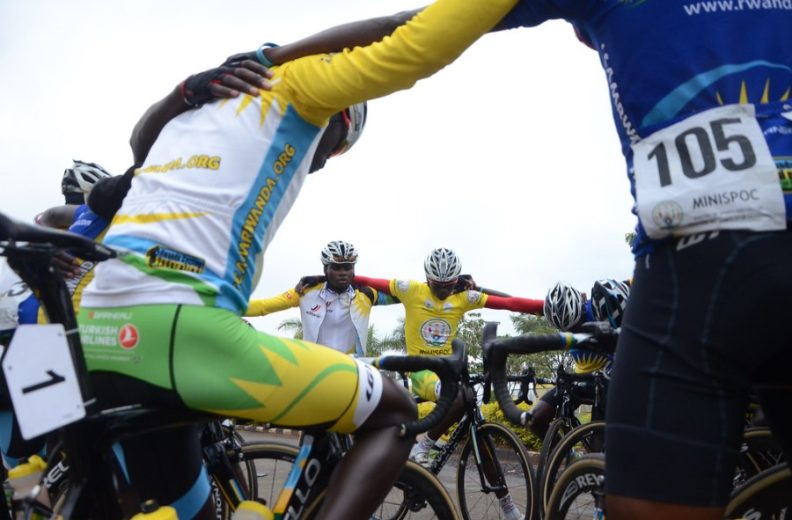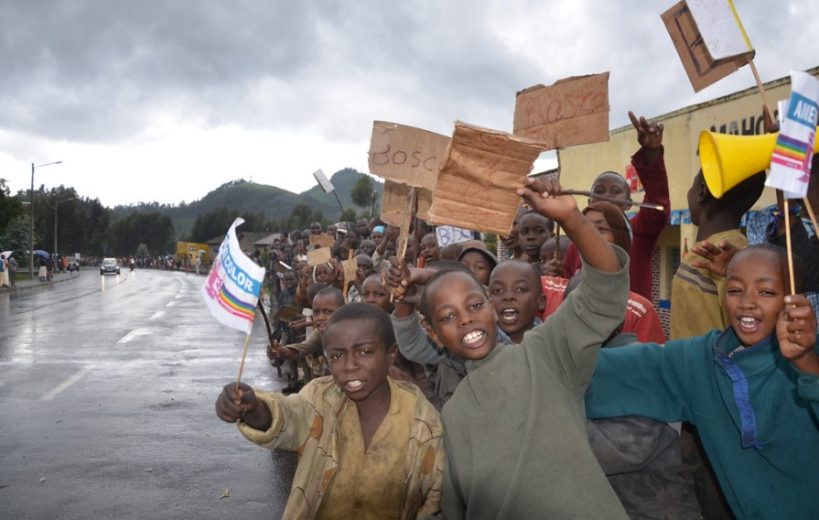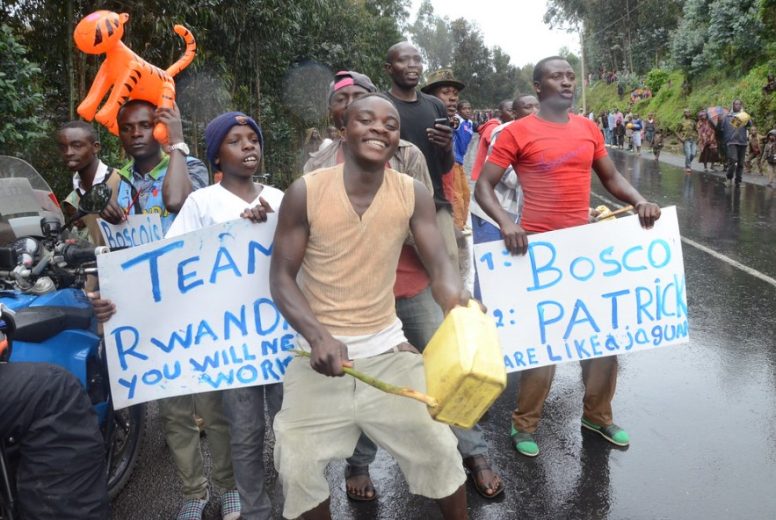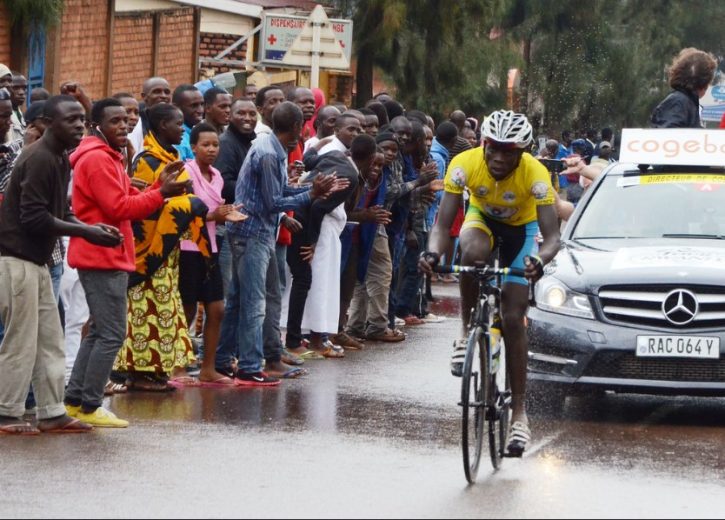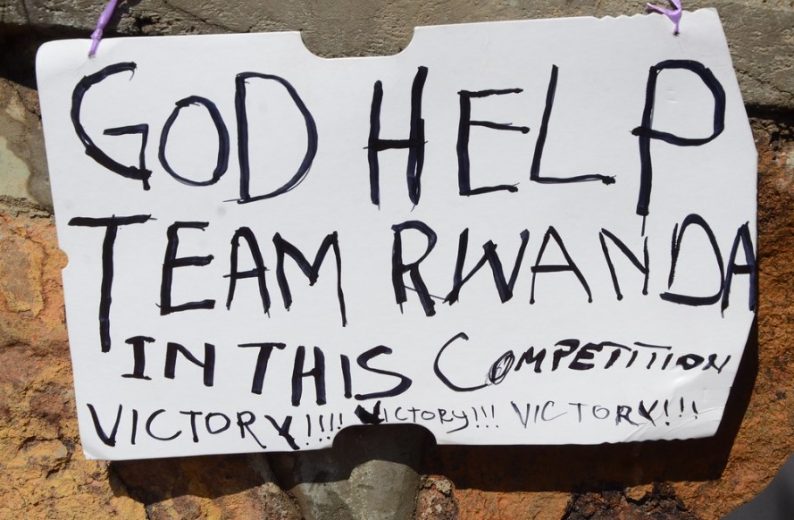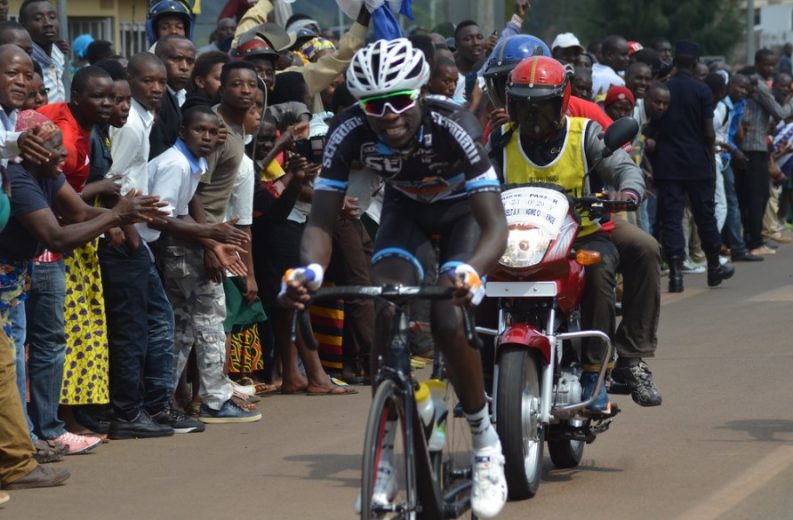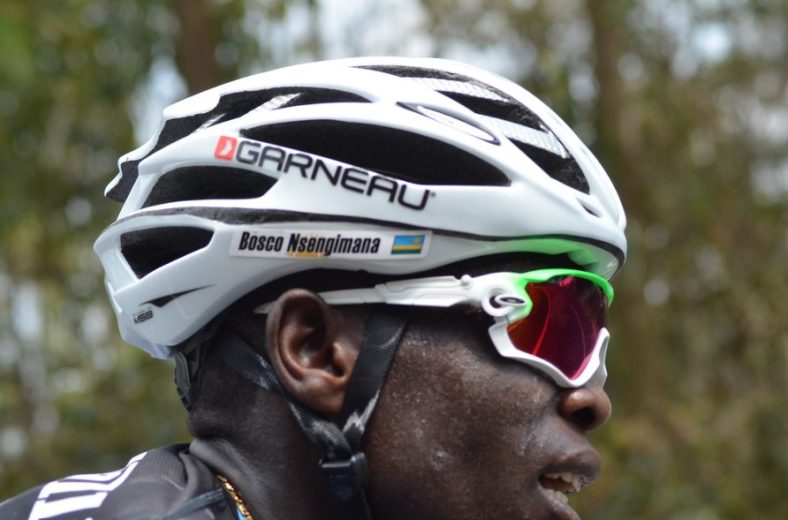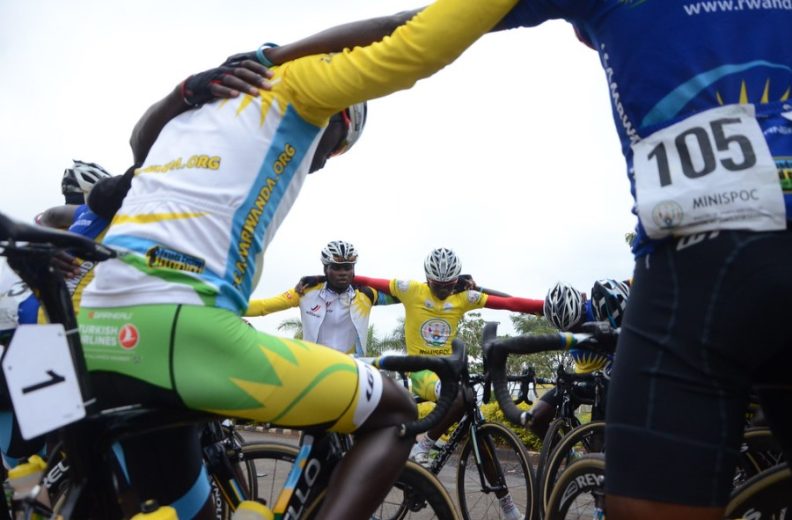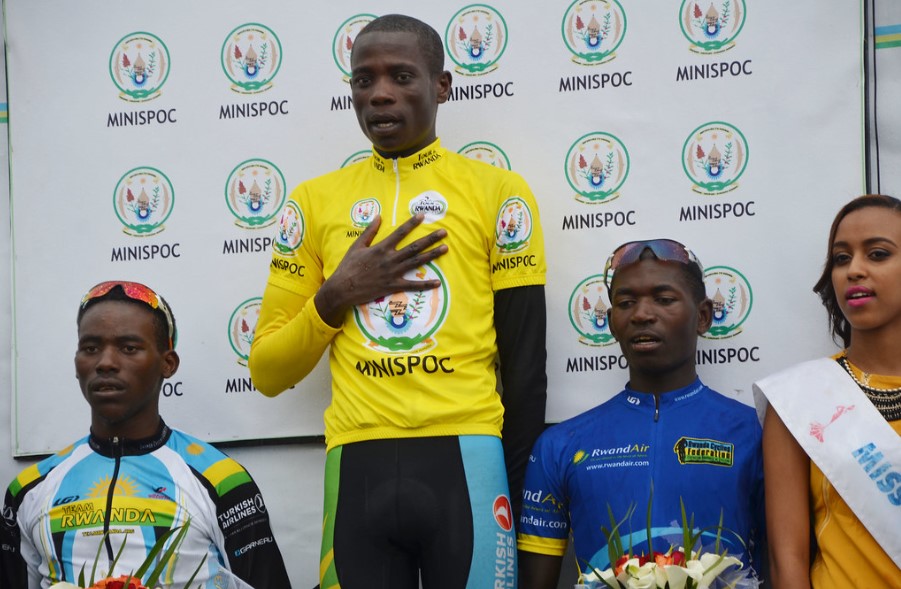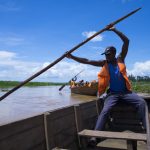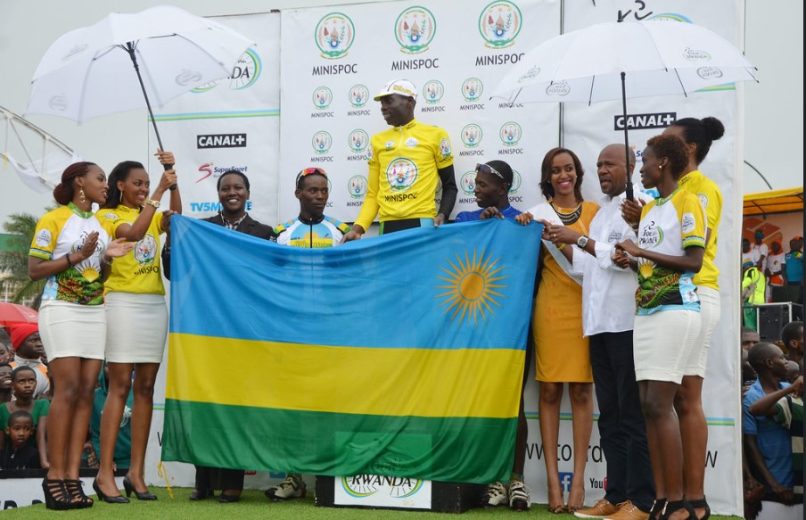
Jean Bosco Nsengimana once stood at the pinnacle of Rwandan cycling. Born in 1992 in Shashwara, Nyabihu District, he rose through the ranks to become one of the country’s most celebrated cyclists. His crowning achievement came in 2015 when he won the Tour du Rwanda, cementing his place in the nation’s sporting lore. Yet today, Nsengimana struggles to make ends meet — pedalling a taxi-velo in his native village of Shashwara, pleading for help, and wondering aloud how a national hero could fall so far.
From Humble Beginnings to National Glory
Nsengimana’s journey mirrors the modest but determined spirit of many Rwandan athletes. As a young teenager, he worked as a bike courier to support his family after his father’s death. According to reports, he would observe pro cyclists passing by his hometown and quietly dream of joining their ranks. It wasn’t easy: when he first approached then-coach Félix Sempoma, he was rejected for being “too skinny.” But his passion — paired with unrelenting persistence — convinced Sempoma to give him a chance.
From there, Nsengimana climbed steadily. In 2013, he placed 6th overall in the Tour du Rwanda. In 2014, he claimed the mountains classification at the Tour de Blida, and took 2nd in the time trial at the Rwandan national championships.
The breakthrough came in 2015. Riding for the Rwanda Karisimbi team, he won the overall Tour du Rwanda in a memorable and grueling seven-stage race of nearly 928 km, finishing in 23:54:50. Beyond that, he won the young rider classification, the prologue, and several stages — a dominant performance that made him a national hero.
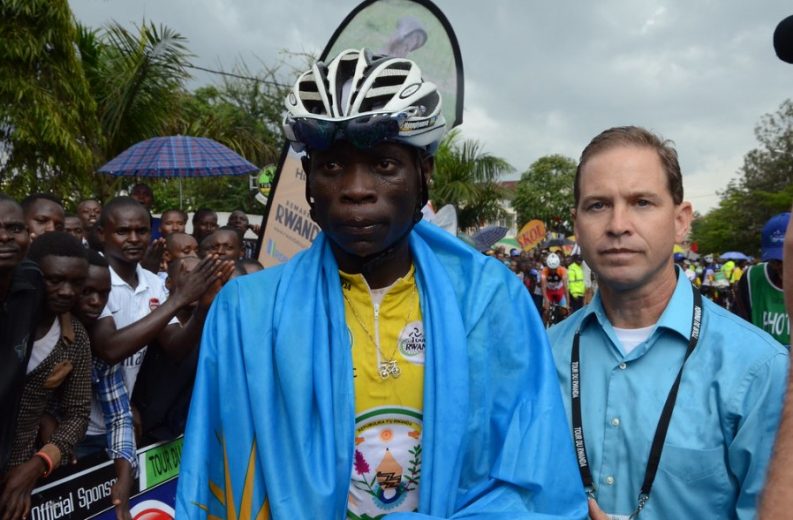 Continental Success — But Not Global Stardom
Continental Success — But Not Global Stardom
Nsengimana didn’t stop at Rwanda’s borders. He represented his country in continental championships, contributing strong performances for Team Rwanda. In 2017, he helped secure a bronze medal in the team time trial at the African Games. He also finished 2nd in the individual time trial at the 2018 African Road Championships.
In 2017, he won the 3.3 km prologue at the Tour du Rwanda in just 3 minutes, 46 seconds — a record-setting performance that earned him the leader’s jersey. In 2023, even in the later stages of his career, he continued to show his mettle: he finished 31st overall in the Tour du Rwanda.
Despite this, Nsengimana never broke into the top echelons of the global cycling world. His career, like that of many African cyclists, was constrained by limited resources, fewer opportunities, and less institutional support compared to riders from Europe or Asia.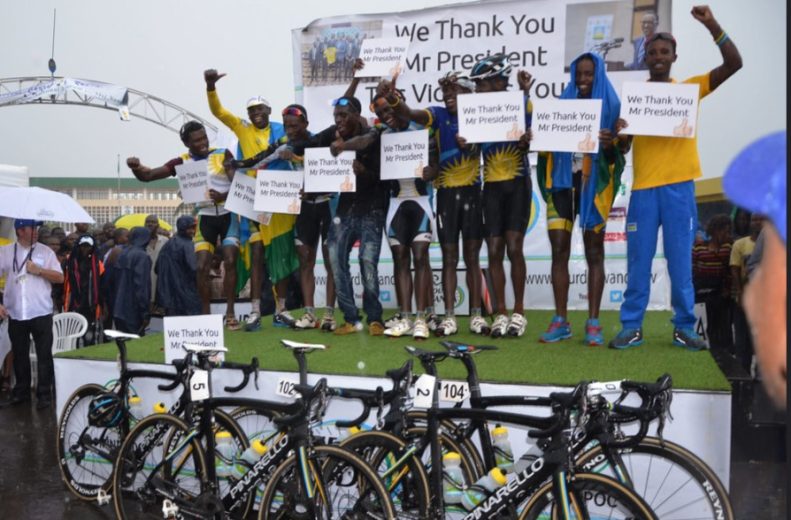
The Descent: From Champion to Taxi-Velo Operator
Today, the once-proud champion pedals not for competition, but as a taxi-velo operator in Shashwara, locally known as “ku Ikora.” In a heartbreaking interview, Nsengimana opened up about his reality: declining wellness, poverty, and a desperate plea for the Ministry of Sports to help him secure a role within Team Rwanda — perhaps in coaching or staff — so he could continue contributing to Rwandan cycling.
He said, “We did our best for our country, but everyone wonders … why our end in cycling always becomes horrible.” His words reflect a bitter irony: athletes fight and sacrifice for national pride, yet often face abandonment when their competitive careers wane.
His story is all the more poignant when considering his peers. Several former Rwandan cycling icons have left the country in search of greener pastures. Nsengimana named Valens Ndayisenga (Tour du Rwanda winner in 2014 and 2016), Hadi Janvier (former captain and African Games champion), Samuel Mugisha, and Bonaventure Uwizeyimana — all of whom now live in the United States. He also mentioned Jeanne d’Arc Girubuntu, one of the greatest Rwandan women cyclists, who left to pursue opportunities abroad. Nsengimana’s lament: “They found that there is nothing in our profession here in the country.”
He is now, perhaps, one of the few still trying: along with Joseph Areruya, the 2017 Tour du Rwanda winner, he remains in Rwanda, hoping for a second chance or a new purpose.
Why He Believes in a Second Act
Nsengimana’s plea isn’t simply financial. He’s asking for dignity, recognition, and a role that leverages his experience. He has spent years building up technical know-how, race strategy, mountain climbing skill, and a deep understanding of how to succeed on the back roads of Rwanda. If given a chance to train the next generation, he could pass on his expertise, and provide stability not only for himself but for young Rwandans who may be dreaming of a cycling career.
He even suggested integration into Team Rwanda’s coaching or administrative staff — roles that would align his passion with a meaningful livelihood. He believes this could also motivate others: “If I can stay and train these kids, they will believe that cycling in Rwanda is more than just racing — it is a pathway.”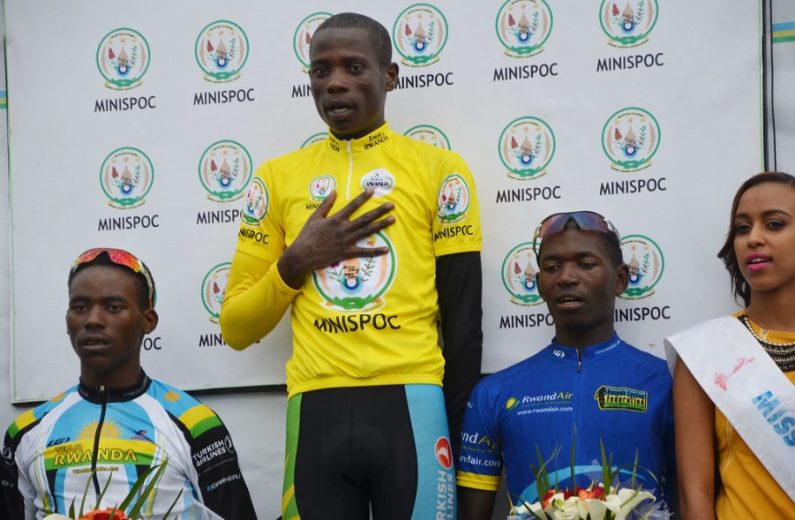
The Systemic Challenge
Jean Bosco Nsengimana’s plight underscores a deeper issue within Rwandan cycling — and, arguably, African cycling more broadly. Talented riders often enjoy national adulation in their youth and prime, but when their race results decline, they’re left to fend for themselves. Riders he mentioned — Ndayisenga, Janvier, Mugisha, Uwizeyimana, Girubuntu — all migrated. Why? Because opportunities at home dried up.
Nsengimana said that many of Rwanda’s top former riders have left the sport and moved abroad in search of better opportunities.
“Look at Valens Ndayisenga, the 2014 and 2016 Tour du Rwanda champion—he is now living in the USA. Team Rwanda captain Hadi Janvier, the 2016 All-Africa Games champion, also left cycling and now lives in the USA. Samuel Mugisha, the 2018 Tour du Rwanda champion, likewise joined the retirees in the USA. And don’t forget Bonaventure Uwizeyimana, one of Team Rwanda’s great icons—he is also in the USA. Finally, Jeanne d’Arc Girubuntu, the best female cyclist Rwanda has ever had and once the top woman in Africa, also left the sport and moved to the USA to seek other opportunities. It’s not that they all wanted to leave, but I think they realised there is nothing for us in this profession here at home.”
Add to that the challenge of resources for cycling federations in developing countries: limited sponsorship, lack of long-term athlete support plans, and not enough investment in post-competition career paths. Nsengimana’s fall from grace reflects not just personal misfortune, but structural neglect.
While commenting on Nsengimana’s situation, senior journalist and Mama Urwagasabo TV owner — who also chairs the Rwanda Media Commission — Scovia Umutesi said it is “shameful to see someone who once carried the national flag ending his career in such hardship.” She noted that even average athletes should not be forced into premature retirement “as if their federations are not functioning.”
“There might be something wrong with the leadership of the federations responsible for these disciplines,” she added.
Nsengimana, who also rode for Germany-based BikeAid Cycling Team, was part of the Team Rwanda squad that won La Tropicale Amissa Bongo in 2018, where his teammate Joseph Areruya claimed overall victory in Africa’s biggest race.
According to Umutesi, losing a legend like Nsengimana raises serious questions for those responsible for talent development, the national team, the Ministry of Sports, and sports sponsors.
“I wonder how this young man cannot even be given a simple job at the Ministry of Sports — even as a cleaner — instead of ending up working as a taxi-velo operator,” she said.
During the TV show aired on her channel, Umutesi also suggested that Nsengimana could be integrated into Team Rwanda “as a staff member or as a legend who can guide and advise young riders.”
A Hero in Search of Help
As Nsengimana pedals his taxi-velo around Shashwara, he remains a symbol — of triumph, struggle, and unfulfilled potential. His 2015 Tour du Rwanda victory should have chained him to a legacy: a trophy in a cabinet, yes, but also a respected role in sport, a way to give back and remain relevant.
Instead, he rides for survival. His public appeal is personal, but it’s also a call to the Rwandan government, its Ministry of Sports, and the Rwanda Cycling Federation: recognize our champions, value their experience, and carve out roles for them beyond competition.
To lose Jean Bosco Nsengimana to obscurity would not just be a tragedy for him — but a failure for a nation that once celebrated him as its cycling king. If Rwanda invests in him now, not only could it restore dignity to a former champion, but it could also uplift an entire generation of young cyclists who need mentors, not just memories.
During a phone interview,
, Jeanne d’Arc Girubuntu — widely regarded as the best female cyclist Rwanda has ever produced — said there is an urgent need to value senior cyclists instead of abandoning them once their professional careers slow down. Girubuntu, now a U.S. citizen and a former Team Rwanda rider, explained:
“For me, giving up cycling was my last option. I spent more than a year struggling with muscle problems in my legs, and I feared that if the situation continued, I would be forced out of the sport altogether.”
She added that the lack of opportunities for retired riders and uncertainty about their future after competition often push athletes into premature retirement.
“There needs to be a system that keeps senior riders engaged in the sport.”
The 30-year-old former pro cyclist emphasized the importance of keeping cyclists active, regardless of age.
“Maybe they could work as assistant coaches in clubs, or be supported with funding to start their own teams or academies,” she said.
